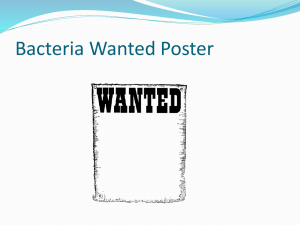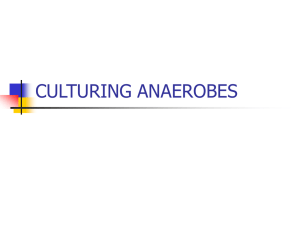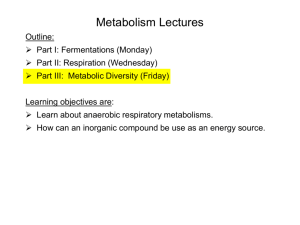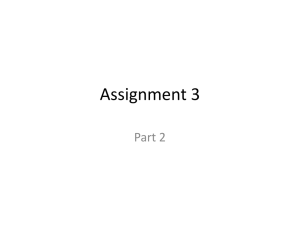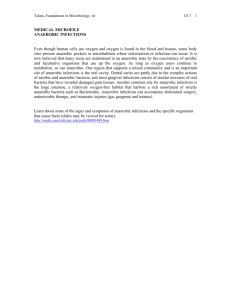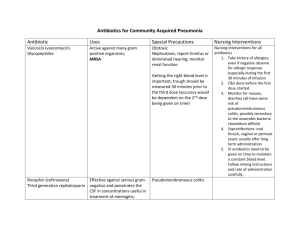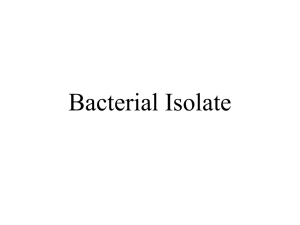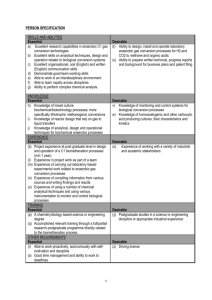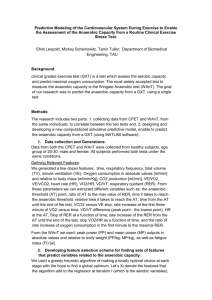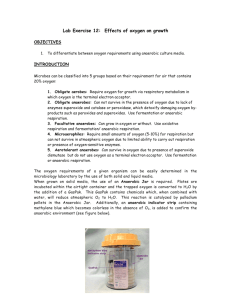DISINFECTANTS, ANTISEPTICS, AND ANTIBIOTICS
advertisement
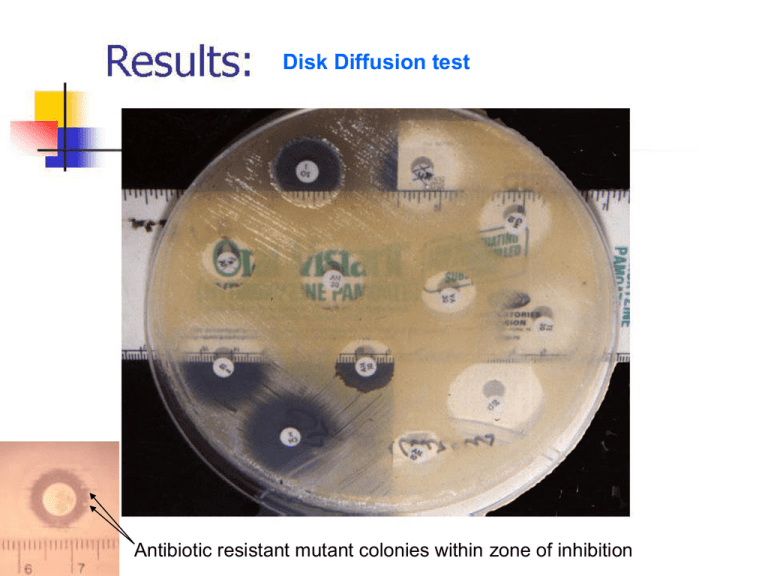
Disk Diffusion test Antibiotic resistant mutant colonies within zone of inhibition Disinfectants Chemical substances used to prevent microbial growth on inanimate surfaces Antiseptics Chemical substances used to prevent microbial growth on the surface of living tissue Decontamination: Decreasing microbial burden on a material in order to make it safe to handle (i.e. use of disinfectants). Sterilization: Complete destruction of all microorganisms on a material. Examples include: Autoclaving Incineration Ethylene oxide Irradiation Spore indicators validate sterilization Microbes Ranked by Susceptibility to Disinfectants Least Susceptible Example Strength Disinfectant Spore forming bacteria (Bacillus, Clostridia) Formaldehyde Mycobacteria (tuberculosis) Bleach Non-Enveloped Viruses Fungi Most Bacteria Lipid Enveloped Viruses (flu) Most susceptible Alcohol and Most household disinfectants Staphylococcus Gram + cocci In clumps Streptococcus Gram + cocci in chains Gram neg. cocci Gram neg. rods Gram + rods Bacillus Results • Acid-fast cells stain reddish-purple • nonacid-fast cells stain blue Results: • Endospore will stain green • Vegetative cell will stain pink SELECTIVE, DIFFERENTIAL AND ENRICHED MEDIA Review the complete presentation. 1 2 3 4 1) Aerobe 2) Obligate anaerobe 3) Micro-aerophile 4) Facultative anaerobe GAS PAK SYSTEM • Uses an anaerobic jar which contains: 1) inoculated plates to be grown anaerobically are placed inside 2) gas generator envelope—produces H+ and CO2 upon the addition of water 3) paladium catalyst—combines H+ with oxygen to form H2O 4) indicator strip—impregnated with either methylene blue or resazurin to indicate whether anaerobic conditions inside the jar have been achieved (The methylene blue indicator strip becomes colorless in absence of oxygen.) (Resazurin becomes pink in presence of oxygen.) GasPak Anaerobic System The GasPak Anaerobic System is used to create an oxygen-free environment for the growth of anaerobic microorganisms. Inoculated plates or tubes are placed inside the chamber, and anaerobic conditions are created by adding water to a gas generator envelope that is placed in the jar just before sealing. The envelope contains two chemical tablets, sodium borohydride and sodium bicarbonate. Water reacts with these chemicals, producing hydrogen gas and carbon dioxide. The hydrogen gas combines with free oxygen in the chamber to produce water, removing all free oxygen from the chamber. This reaction is catalyzed by the element palladium, which is attached to the underside of the lid of the jar. The carbon dioxide replaces the removed oxygen, creating a completely anaerobic environment. Page 113 Use Mueller-Hinton plates: (MH) enriched media supplemented with beef broth and other nutritional supplements facilitates growing fastidious organisms Disk Diffusion test Antibiotic resistant mutant colonies within zone of inhibition
